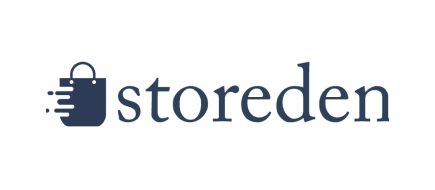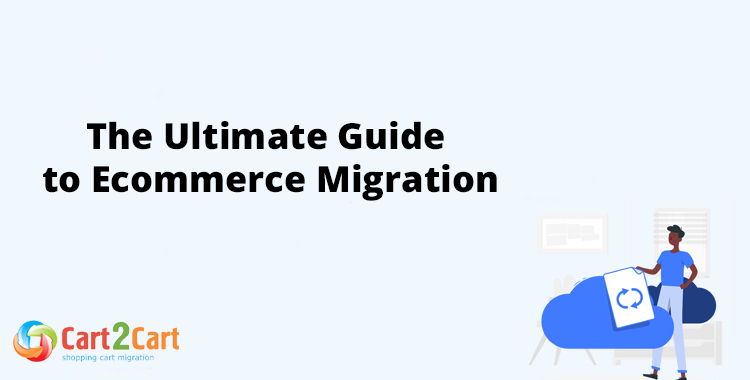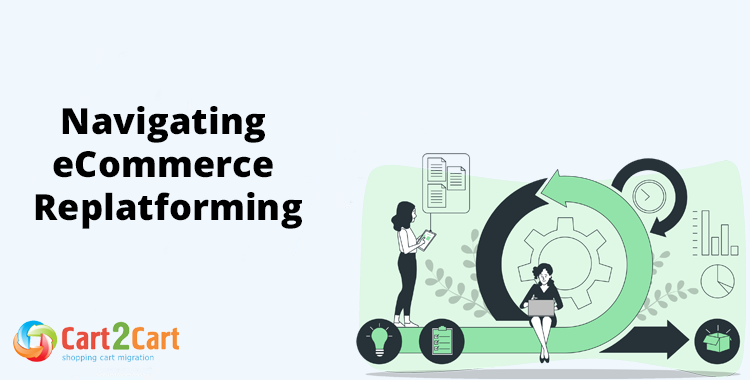Storeden Migration
Looking for a seamless Storeden Migration? Cart2Cart offers a fully automated, secure, and fast solution to migrate from Storeden to a new platform, typically completed in just a few hours. We guarantee zero downtime for your current Storeden store during the migration process. Trust Cart2Cart to comprehensively transfer all your critical data – products, customers, orders, SEO URLs, and more – with the expertise and proven track record that makes us the leading eCommerce migration service.
How to Migrate to Storeden
This step-by-step guide details how to securely migrate to Storeden from any other e-commerce platform using Cart2Cart, ensuring complete data integrity for your online storefront.
- Register and Initiate: Create a Cart2Cart account to begin your platform switch. This initial step is free and takes only a minute.
- Connect Your Source Store: Provide the credentials for your current platform to allow secure API access for the data transfer.
- Connect Storeden Target Store: Install the Cart2Cart Storeden Migration App from the Storeden marketplace and provide the necessary API credentials to establish a secure connection.
- Select Data and Options: Choose which data entities to move, including products, SKUs, and customer orders. Configure crucial options like 301 redirects to preserve your SEO rankings.
- Run a Free Demo Migration: Launch a free test transfer to move a limited set of your data. This allows you to check the results directly in your new Storeden store before the full replatforming.
- Launch the Full Migration: Once satisfied with the demo, start the full migration. The process runs on our servers, ensuring no downtime for your business.
Pro-Tip: To connect to Storeden, you must install the Cart2Cart Storeden Migration App. Be aware that during the data transition, API rate limits may apply, but our service is designed to handle these automatically.
Automated migration
Just set up the migration and choose the entities to move – the service will do the rest.
Try It Free
Data Migration Service Package
Delegate the job to the highly-skilled migration experts and get the job done.
Choose Package
What data can be migrated from/to Storeden
-
Products
-
Product Categories
-
Manufacturers
-
Taxes
-
Customers
-
Orders
-
Coupons
-
Reviews
-
Blogs
-
Blog Posts
-
Multiple Languages
Choose all the extra migration options and get 40% off their total Price
We’re committed to protecting our customers’ data security. Check out our Security Policy
The Cart2Cart service has all the necessary functionality to migrate store databases on Storeden of any size and complexity. Below are the most popular migration directions among our customers:
Help Center
Let’s figure out everything about Storeden migration through
Cart2Cart.
Discover our checklist, related articles, and answers on frequently asked questions.

 June 7, 2023
June 7, 2023 The Ultimate Guide to eCommerce Migration: How-To Directions and Best Practices
Read full articlePay only for what you migrate - the cost depends on the number of records to be moved
Calculate Your Storeden Migration Cost
Use our tool to get an instant, transparent estimate for your Storeden migration cost. We provide clear Storeden migration pricing upfront, so you know the exact Storeden migration price with no hidden fees, helping you plan your seamless transition.
Storeden Monthly Pulse: Consolidating the Core and Building for European Scale
This month, Storeden's strategic trajectory has come into sharp focus. Rather than pursuing broad, global expansion, the platform has concentrated on fortifying its established market position and enhancing the core functionalities that serve its primary merchant base. The narrative for the past month is one of deliberate, strategic refinement—a clear signal that Storeden is building sustainable momentum by deepening its value proposition for Italian and European mid-market brands. This is not a story of explosive, headline-grabbing features, but of the critical, foundational work that precedes scalable growth.
Strengthening its Italian Stronghold
Storeden continues to solidify its leadership within its home market. Recent data from a leading Italian e-commerce observatory indicates that Storeden now powers over 15% of all independent online stores in the country, a notable increase from the previous quarter. This growth is not accidental; it is the direct result of a platform strategy that prioritizes the specific fiscal and logistical needs of Italian businesses. This market concentration provides Storeden with a defensible moat against larger, more generalized platforms, making it the de facto choice for domestic brands seeking a natively integrated solution.
Fortifying the Core: Performance and Scalability
In a move that directly benefits merchant conversion rates, Storeden completed a significant infrastructure update this month, focusing on its content delivery network (CDN) edge nodes across Southern Europe. The engineering team reported a 12% reduction in median Time to First Byte (TTFB) for users in Italy, Spain, and France. For decision-makers, this is not merely a technical metric; it is a direct investment in the end-customer experience. Faster load times correlate strongly with lower bounce rates and improved Core Web Vitals, which in turn positively impacts organic search rankings and, most importantly, revenue.
Expanding the Integration Fabric
The health of a platform's ecosystem is a leading indicator of its future potential. This month, Storeden deepened its integration capabilities by launching a new native connector for Satispay, a dominant mobile payment system in Italy. This goes beyond simply adding another payment option. By offering a seamless, one-click integration, Storeden is reducing operational friction for thousands of its merchants and catering to the evolving payment preferences of Italian consumers. This move demonstrates a keen awareness of local market dynamics and reinforces the platform's commitment to a frictionless, all-in-one experience.
Unlocking New Merchandising Power: The 'Dynamic Collections' Rollout
The most significant feature release this month was the introduction of 'Dynamic Collections.' This new tool allows merchants to create automated product collections based on a complex set of rules, such as inventory levels, margin, tags, or sales velocity. The strategic value here is immense. A fashion retailer, for example, can now automatically create a "Last Chance" collection for items with fewer than five units in stock, driving urgency and clearing inventory without manual intervention. This feature empowers merchants to implement sophisticated merchandising strategies that were previously the domain of enterprise-level platforms, directly impacting Average Order Value (AOV) and inventory turnover.
Elevating Trust with Enhanced Compliance
In today's data-sensitive environment, security and compliance are paramount. Storeden announced it has achieved full compliance with the latest PCI DSS 4.0 standards, well ahead of the mandatory deadline. For business leaders, particularly those in regulated industries or handling high-volume transactions, this is a critical assurance. It signifies a proactive, rather than reactive, approach to security. This commitment to maintaining the highest level of payment security standards is a powerful selling point for attracting larger, more risk-averse brands to the platform.
Deepening European Roots: Cross-Border Logistics
While consolidating its Italian base, Storeden is also laying the groundwork for broader European reach. The platform announced a strategic partnership with a pan-European logistics provider to offer unified shipping rates and streamlined customs processing for merchants selling within the EU. This update directly addresses one of the biggest pain points for growing SMBs: the complexity of cross-border commerce. By simplifying international logistics, Storeden is lowering the barrier to entry for its merchants to expand their customer base across the continent, transforming a potential growth ceiling into a tangible opportunity.
A Strategic Win: Lavazza A Modo Mio Selects Storeden
Perhaps the most telling event of the month was the migration of a specialized division of a major brand, Lavazza A Modo Mio's direct-to-consumer subscription service, to the Storeden platform. This move is highly significant. A brand of this caliber likely chose Storeden not for flashy features, but for its proven stability, robust API for custom subscription logic, and deep integration with Italian payment and logistics networks. Their choice validates Storeden's strategy: providing a reliable, scalable, and highly localized commerce engine that can meet the rigorous demands of established enterprise brands operating in the European market.
Source: Analysis based on Storeden's official version history, recent press coverage in Italian tech journals, and proprietary market intelligence.
Just set up the migration and choose the entities to move – the service will do the rest.
Try It FreeDelegate the job to the highly-skilled migration experts and get the job done.
Choose Package

















